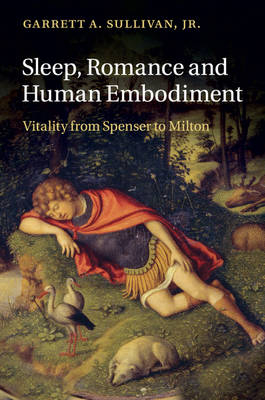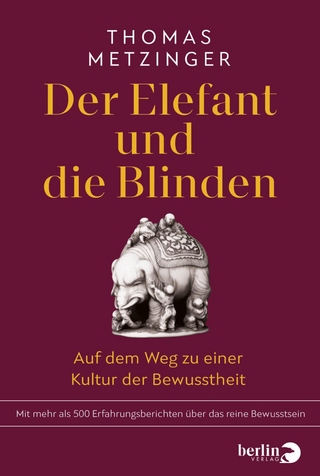
Sleep, Romance and Human Embodiment
Cambridge University Press (Verlag)
978-1-316-50533-5 (ISBN)
Garrett Sullivan explores the changing impact of Aristotelian conceptions of vitality and humanness on sixteenth- and seventeenth-century literature before and after the rise of Descartes. Aristotle's tripartite soul is usually considered in relation to concepts of psychology and physiology. However, Sullivan argues that its significance is much greater, constituting a theory of vitality that simultaneously distinguishes man from, and connects him to, other forms of life. He contends that, in works such as Sidney's Old Arcadia, Shakespeare's Henry IV and Henry V, Spenser's Faerie Queene, Milton's Paradise Lost and Dryden's All for Love, the genres of epic and romance, whose operations are informed by Aristotle's theory, provide the raw materials for exploring different models of humanness; and that sleep is the vehicle for such exploration as it blurs distinctions among man, plant and animal.
Garrett A. Sullivan, Jr is Professor of English at Pennsylvania State University. He is the author of The Drama of Landscape: Land, Property, and Social Relations on the Early Modern Stage (1998) and Memory and Forgetting in English Renaissance Drama: Shakespeare, Marlowe, Webster (2005). He has also edited numerous works, among which are The Cambridge Companion to English Renaissance Tragedy (with Emma Smith, 2010), Environment and Embodiment in Early Modern England (with Mary Floyd-Wilson, 2007), Early Modern English Drama: A Critical Companion (with Patrick Cheney and Andrew Hadfield, 2007) and The Encyclopedia of English Renaissance Literature (co-general editor with Alan Stewart, 2012).
Introduction; Part I. Aristotelian Vitality Ascendant: 1. 'Both plant and beast together': temperance, vitality and the romance alternative in Spenser's Bower of Bliss; 2. Sleeping minds: romance, affect and environment in Sidney's The Old Arcadia; 3. Sleep, history and 'life indeed' in Shakespeare's 1 and 2 Henry IV and Henry V; Part II. Aristotelian Vitality Embattled: 4. 'From the root springs lighter the green stalk': vegetality and humanness in Milton's Paradise Lost; Part III. Aristotelian Vitality Undead: 5. 'Desperate sloth, miscalled philosophy': Descartes and the post-Aristotelian romance episode in Dryden's All for Love; Coda: beyond undeath.
| Erscheinungsdatum | 06.01.2016 |
|---|---|
| Zusatzinfo | Worked examples or Exercises |
| Verlagsort | Cambridge |
| Sprache | englisch |
| Maße | 150 x 230 mm |
| Gewicht | 320 g |
| Themenwelt | Geisteswissenschaften ► Philosophie ► Geschichte der Philosophie |
| Geisteswissenschaften ► Philosophie ► Philosophie des Mittelalters | |
| Geisteswissenschaften ► Philosophie ► Philosophie der Neuzeit | |
| Geisteswissenschaften ► Sprach- / Literaturwissenschaft ► Anglistik / Amerikanistik | |
| Geisteswissenschaften ► Sprach- / Literaturwissenschaft ► Literaturwissenschaft | |
| ISBN-10 | 1-316-50533-2 / 1316505332 |
| ISBN-13 | 978-1-316-50533-5 / 9781316505335 |
| Zustand | Neuware |
| Haben Sie eine Frage zum Produkt? |
aus dem Bereich


